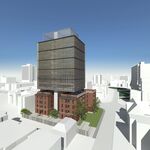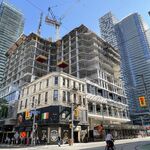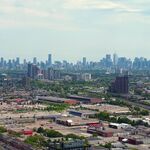Jarrett,
Your post is right on target! Personally I agree with most of your comments and conclusions - including requiring the property owners on the streets where streetcars operate help pay for them. However I disagree that streetcars are best for Portland. Additionally, there are a few of things that were not said.
1. Streetcars crawling along in mixed traffic and obstructing motor vehicle travel lanes when boarding passengers create additional congestion thereby gumming up the streets on which they operate. Nationally, motor vehicle engines idling in stop and go traffic wastes 2.3 billion gallons of fuel a year. Keeping the traffic flowing on a street must be viewed as a priority. Therefore, streetcars do NOT belong on high traffic volume arterial streets.
2. It is highly deceptive and fictitious to suggest that streetcars have promoted private sector development. In actuality, the new development that has occurred along the present Portland Streetcar route is to a large degree due to taxpayer funded subsidies to the developers, property tax abatements and cheap land provided by the Portland Development Commission. Given those same incentives, new development could easily occur anywhere in the city.
3 The ridership numbers on the Portland Streetcar are skewed because the majority of the service is free to the users, paid for with taxpayer and motorist paid subsidies. Additionally, there is a high degree of fare evasion due to the majority of the operation taking place in Fareless Square.
4. Comprehensive transit planning Portland has been lost. What is currently happening is that a route is chosen for a specific mode such as light rail or the streetcar by a stacked deck of group pushing their own manipulative agenda. An effort is made to justify that route by wedging the rails into the current transportation infrastructure, then projecting increased (and taxpayer subsidized) density and reworking other transit operations to feed the system with the purpose of manipulating the numbers so the new service will pass muster with the Feds.
Specific transit planning must start with purpose and need with mode choice coming NOT first, but last. What is missing in Portland is an in-depth comprehensive comparison study of the overall cost effectiveness of all modes for transit for each route before a mode choice is actually made. As an example, instead of spending $10M per mile, an electric trolley bus system plan that in its most basic form only requires overhead wires be installed over the streets may very well be the most cost effective for taxpayers. The best example I can give occurred in the 1970s when planning for Eastside transit alternatives and the Banfield Freeway occurred. .Alternatives for transit considered ranged from doing nothing to special treatment on local streets, a HOV lane on the freeway, a bus way and light rail. Alternatives for the freeway included doing nothing, just moving the narrow lanes over to accommodate space for a transit project and various upgrades. What eventually came out of the four year comprehensive study is what we have today - light rail all the way to Gresham (it was originally only planned to go to Gateway), and upgrades to the freeway that included safety improvements and widening the facility and lanes, but to less than full interstate standards. Many of the costs (such as grading and over crossings) to construct light rail and make freeway improvements were shared thereby making the over all project extremely cost effective.




